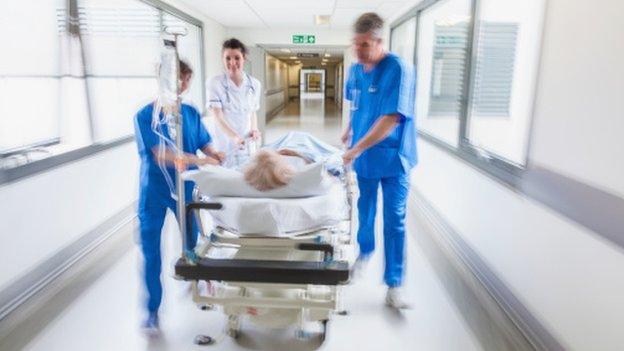End 'fixation' with A&E waiting time target, say experts
- Published
- comments
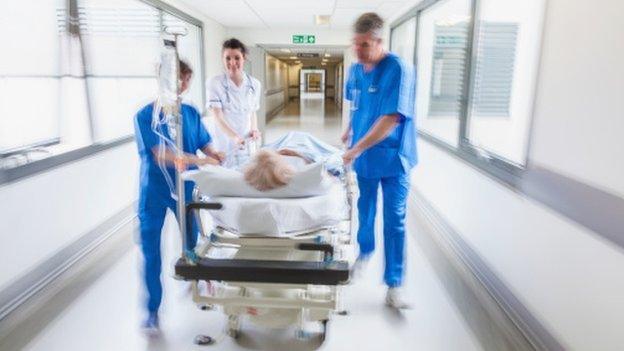
The four-hour A&E waiting time target should be downgraded as it is distorting priorities, experts say.
The call by the Nuffield Trust comes as one of the most difficult winters for years is coming to an end with all four parts of the UK missing the target.
The think tank said the "fixation" meant other bottlenecks, such as ambulance delays and waits for beds, were not getting enough attention.
It said using a range of measures would give a more "balanced" picture.
The Nuffield Trust suggested long waits for beds - known as trolley waits - ambulance delays, the numbers leaving A&E without being seen and patient satisfaction surveys could also be used to assess performance.
It said waiting times for treatments would still be measured as part of this more comprehensive monitoring regime.
It comes as the latest figures show a slight worsening of waits in A&E in England.
In the week leading up to Sunday, 91.5% of patients were seen in fours down from 92% last week.

The four-hour target explained
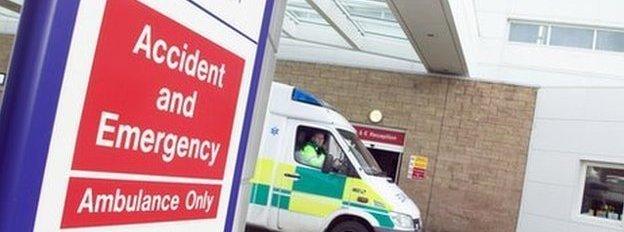
Hospitals in England are expected to see 95% of A&E patients in four hours - similar targets exist elsewhere in the UK.
The four hours measures the point from arrival to when a patient is either discharged, transferred or admitted into the hospital for further treatment.
The target was introduced in 2004 and set at 98%. It was relaxed to 95% in 2010.
Latest figures show just 91.5% of patients are being seen in that time in England.
It is also being missed in Wales, Northern Ireland and Scotland.

The think tank, which has produced a briefing document on the pressures facing the system, said hospital managers were spending too much time and effort trying to meet a target, which for many hospitals was proving very difficult.
Overall, the target has not been hit on a weekly basis since September, but once the minor units, such as walk-in centres and minor injuries are stripped out, the major units - known as type ones - have not achieved the target since July 2013.
Nuffield Trust chief executive Nigel Edwards said: "The four-hour target has come to loom over every other measure of how well patients with urgent needs are being cared for.
"Nobody denies that it really matters to people. But there are a lot of other things that matter in emergency healthcare.
"Politicians and regulators need to stop micro-managing this target and should instead examine how to put the four-hour target on an equal footing with other critical indicators."
The Royal College of Emergency Medicine said it was "broadly supportive" of the suggestions.
"The four-hour standard has reduced the amount of time patients spend in the emergency department, though it is clearly only one measure among many which should be used to measure the performance of departments," a spokesman added.
A spokesman for NHS England said health leaders were already being encouraged to use a "richer range of data" to monitor performance.
"We welcome contributions such as this that will help us to identify how we can work more efficiently."
- Published20 February 2015

- Published16 January 2015
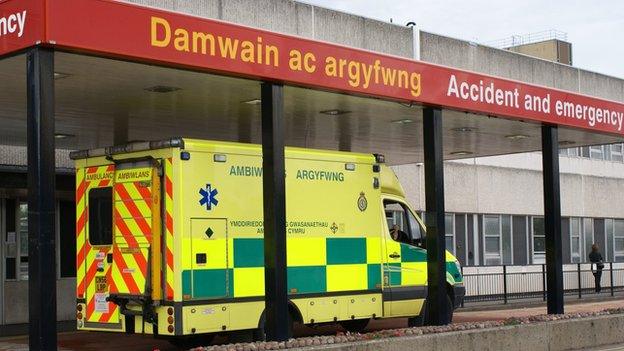
- Published12 January 2015
- Published7 January 2015
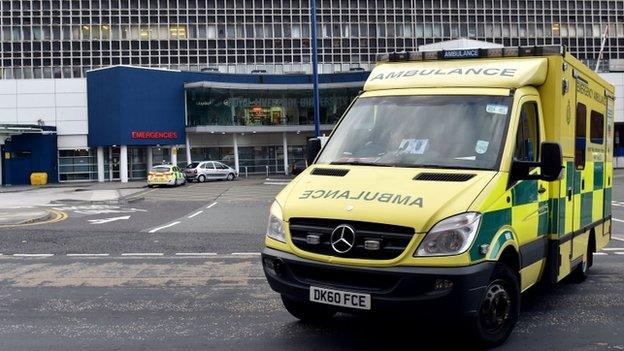
- Published6 January 2015
